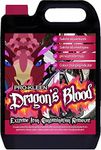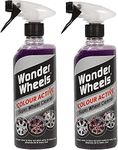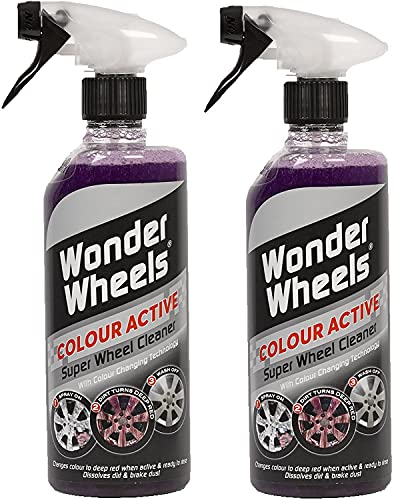Buying Guide for the Best Wheel Cleaners
Choosing the right wheel cleaner is essential for maintaining the appearance and longevity of your vehicle's wheels. The right product can help you remove dirt, brake dust, and grime effectively without damaging the wheel's finish. When selecting a wheel cleaner, consider the type of wheels you have, the level of dirt and grime, and any specific needs or preferences you might have. Here are some key specifications to consider when choosing a wheel cleaner.Wheel Material CompatibilityWheel material compatibility refers to whether the cleaner is safe to use on different types of wheel finishes, such as alloy, chrome, painted, or anodized wheels. This spec is important because using a cleaner that is not compatible with your wheel material can cause damage or discoloration. To navigate this, check the product label or description to ensure it is suitable for your wheel type. If you have alloy wheels, look for cleaners specifically formulated for alloys. For chrome wheels, choose a cleaner that is safe for chrome finishes. Always pick a cleaner that matches your wheel material to avoid any potential damage.
Cleaning StrengthCleaning strength refers to the effectiveness of the cleaner in removing dirt, brake dust, and grime. This spec is important because it determines how well the cleaner will perform in keeping your wheels clean. Cleaners can be divided into light, medium, and heavy-duty strengths. Light cleaners are suitable for regular maintenance and lightly soiled wheels. Medium-strength cleaners are good for moderately dirty wheels, while heavy-duty cleaners are designed for heavily soiled wheels with stubborn brake dust and grime. Choose a cleaner based on the level of dirt and grime on your wheels. If you clean your wheels frequently, a light cleaner may suffice. For less frequent cleaning or heavily soiled wheels, opt for a medium or heavy-duty cleaner.
pH BalancepH balance refers to the acidity or alkalinity of the cleaner. This spec is important because a cleaner with an improper pH balance can damage your wheels or their finish. Cleaners can be acidic, neutral, or alkaline. Acidic cleaners are effective at removing tough grime and brake dust but can be harsh on certain wheel finishes. Neutral pH cleaners are safer for all wheel types and are less likely to cause damage. Alkaline cleaners are also effective but can be less aggressive than acidic ones. To pick the right one, consider the type of wheels you have and their condition. For regular cleaning and maintenance, a neutral pH cleaner is a safe choice. For heavily soiled wheels, you might opt for an acidic cleaner, but ensure it is compatible with your wheel material.
Ease of UseEase of use refers to how simple and convenient the cleaner is to apply and rinse off. This spec is important because a cleaner that is difficult to use can make the cleaning process frustrating and time-consuming. Cleaners can come in spray, gel, or foam forms. Spray cleaners are easy to apply and rinse off, making them ideal for quick cleaning. Gel cleaners tend to cling to the wheel surface longer, providing a deeper clean but may require more effort to rinse off. Foam cleaners expand to cover more surface area and can be effective for thorough cleaning. Choose a cleaner based on your preference for application and the time you want to spend cleaning. If you prefer a quick and easy process, a spray cleaner is a good choice. For a more thorough clean, consider gel or foam cleaners.
Environmental ImpactEnvironmental impact refers to how eco-friendly the cleaner is. This spec is important because using a cleaner with harmful chemicals can negatively affect the environment. Cleaners can be biodegradable, non-toxic, or contain harsh chemicals. Biodegradable and non-toxic cleaners are safer for the environment and your health. Harsh chemical cleaners may be more effective but can be harmful to the environment. To pick the right one, consider your environmental values and the effectiveness you need. If you prioritize eco-friendliness, choose a biodegradable or non-toxic cleaner. If you need a stronger cleaner and are less concerned about environmental impact, you might opt for a cleaner with harsher chemicals.
















